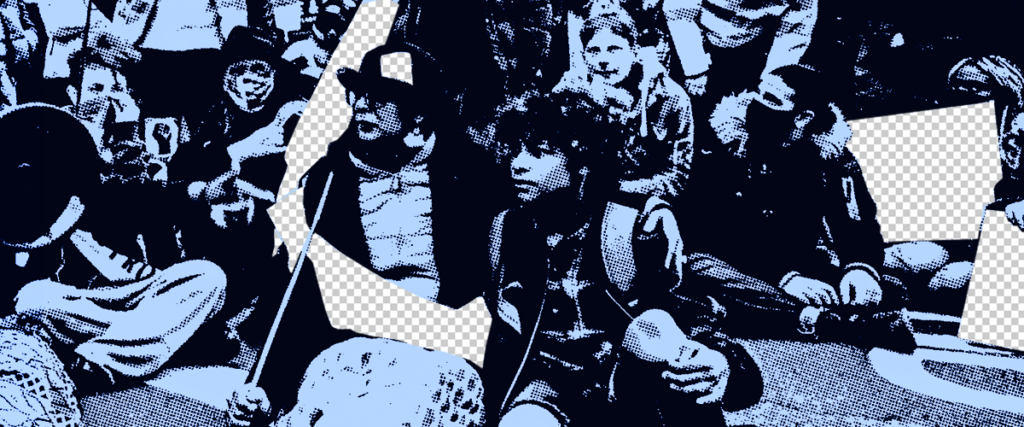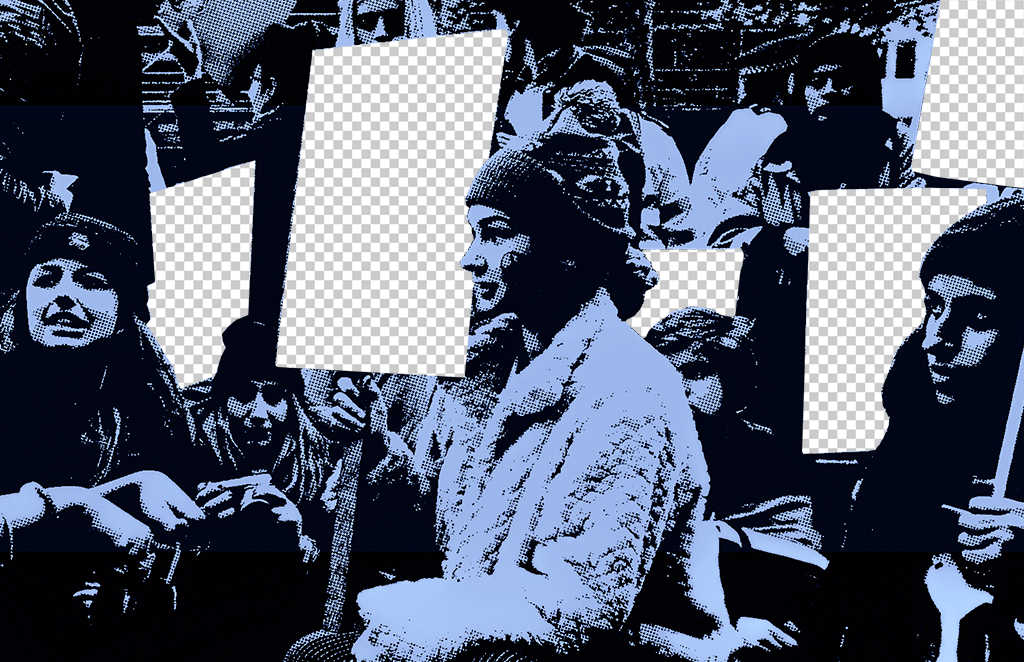
Will the upload filter ban images of protest?
Recently, we saw how police threatened and in a couple of cases, arrested, anti-monarchy protesters, following the death of the late queen Elizabeth II. The images were widely circulated on social media and the police eventually were forced to acknowledge that these protests were, in fact, lawful.
But what if the Online Safety Bill had been in force? Could the outcome have been different? What if the Bill could ban social media images of people protesting in the street?
There’s a curious provision in the Online Safety Bill that could have this effect. Here we explore why that might be.
An attack on protest
These anti-monarchy protesters were captured on smartphone videos, which were subsequently uploaded to social media platforms. Some merely shouted words of protest. Others were holding up hand-written banners, and in one case, a blank sheet of paper.
The police response was to move them on, verbally threaten them, and there were two arrests. In one case, a protester was handcuffed and put in a police van, on suspicion of an offence under Section 5 of the Public Order Act. He was later de-arrested, and described what happened to him to via social media posts. Another was told by a police officer that if he wrote ‘not my king’ on a piece of paper he was holding, he could be arrested. He took a video of the incident that he circulated on Twitter. Again, the Public Order Act was cited.
It would be secret corporate sanctioning at the behest of the State, according to an unknown criteria. This is entirely unacceptable in a democratic state.
Dr Monica Horten, ORG Policy Manager
These accounts of the incidents were picked up by mainstream media. Legal experts and some politicians immediately called it out as a threat to free speech. Civil liberties groups have been rightfully outspoken about these threats. Issues such as the role of the monarchy in our society are a legitimate topic for public debate. It was subsequently admitted by the police authorities that the law does allow people to protest in the street, and holding up a placard is not an offence.
Public order restrictions online
At the moment, it’s perfectly legal for those images and videos to circulate online. They are protected under free speech laws. Indeed, social media is an important conduit for the public to be informed about these protests. Online platforms are public spaces for democratic discussion.
Those social media images give us a little window into a world with the Online Safety Bill in force. The Bill could threaten the circulation of those images of public protests.
Prior restraint is when something is removed prior to publication or without a court having ruled it illegal. In effect, the content is banned before it exists in the arena of public debate.
Dr Monica Horten, ORG Policy Manager
The reference to the Public Order Act Section 5 is significant. In a nutshell, the Online Safety Bill contains a provision for images or videos or text constituting offences under the Public Order Act, to be removed from social media platforms.
Specifically, the Public Order Act Section 5 is included within the list of criminal offences cited in the Bill under the illegal content provisions. All online services will have to comply with “safety duties” asking them to restrict this content.
To determine whether the content is illegal, the Online Safety Bill insists that social media providers take quasi-judicial decisions for themselves. They are not required to demonstrate evidence.
JOIn our campaign
Take action to defend democractic expression from state censorship in the Online Safety Bill.
Act nowCensorship before content is posted
Providers are asked to “swiftly remove” the relevant posts or to “prevent users from encountering” them. This could require the use of an upload filter to remove the videos or images so that they don’t appear either on the user’s own account or in other users’ timelines. An upload filter intercepts users’ posts and attempts to match the images it finds against a database. Where it finds a match, it is instructed to remove the content.
This would be a form of prior restraint – where something is removed prior to publication or without a court having ruled it illegal. In effect, this content is banned before it exists in the arena of public debate.
The outstanding question is how the online platforms would determine an offence for the purposes of the Online Safety Bill. The answer to this question should be seen in context that the platforms will be fined if they do not do what the government expects them to do. They will be judged not on fairness or upholding rule of law, but on how much illegal content they have taken down.
Has the government have misleadingly tucked a public order provision into the Online Safety Bill to leverage their powers in containing protesters?
Dr Monica Horten, ORG Policy Manager
It is therefore within the realm of possibility that photographs and videos of people holding up a placard, if identified as an offence under Section 5 of the Public Order Act 1986, could be removed before it has even been uploaded. Such images could be effectively banned by providers complying with the Bill.
It is especially curious how the Online Safety Bill lumps offences under the Public Order Act together with harassment and stalking offences. These are crimes that put people in fear of violence. Indeed, the section of the Bill is headed ‘Public Order, offences, Harassment, Stalking and fear or provocation of violence’. Is the Public Order Act really a legislative provision that is going to help tackle online harassment and stalking? It’s difficult to see how public order offences will be useful salves for these inherently private, personal and domestic crimes that the Bill purports to solve.
Or is it rather that the government have misleadingly tucked a public order provision into the Online Safety Bill to leverage their powers in containing protesters?
Anti-democratic State
It’s a worry for anyone who values our British fundamental value of free expression. But the Online Safety Bill would take it to another level indeed. It’s possible that pictures of the arrests would be censored, so that the public would not know of the protest, nor that the police had reacted as they did. It would be secret corporate sanctioning at the behest of the State, according to an unknown criteria. This is entirely unacceptable in a democratic state.
Defend Democratic Expression

Join our campaign
The Online Safety Bill threatens freedom of expression online with state censorship.
Take Action NowFree expression online
15 May 2023 By Dr Monica Horten
Small Boats and Silent Protest: Prior Restraint in the Online Safety Bill
Free expression online
11 May 2023 By Pam Cowburn
Online Safety Bill: A Danger to Democracy
11 Jan 2023 By Dr Monica Horten
State enforcement of big tech terms
01 Sep 2022 By Dr Monica Horten
Could debate on immigration be suppressed?
Online Safety Bill Policy Hub
Discover more about the risk to privacy and freedom of expression in our policy papers.
Find out more